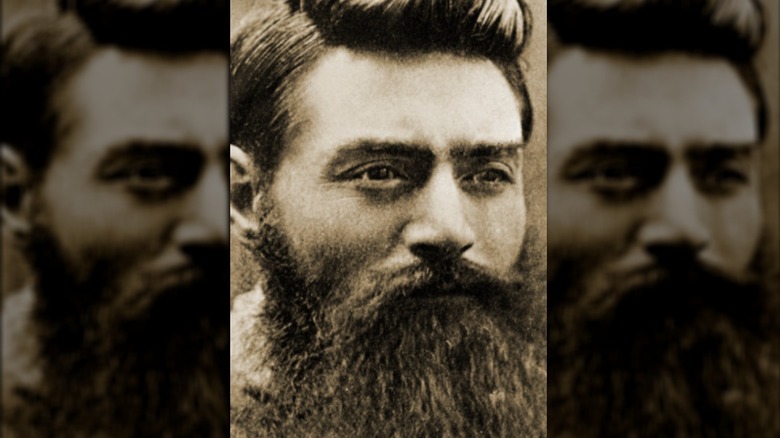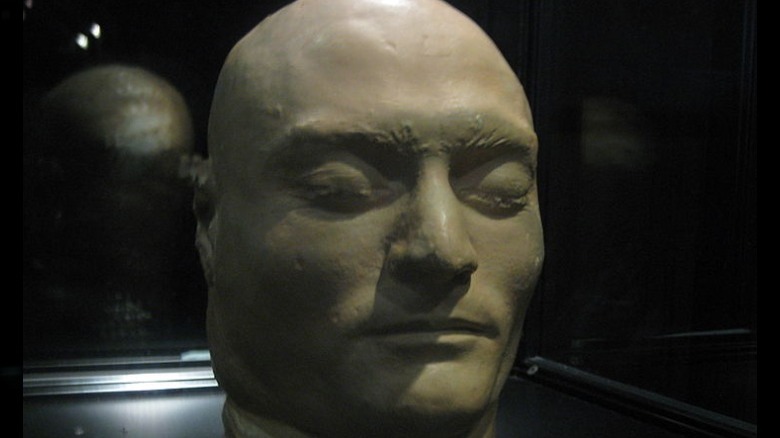The Death Of Australian Outlaw Ned Kelly Explained
Ned Kelly was an Australian folk hero who stood up to corrupt forces in the last quarter of the 19th century. He was also a thieving, murdering bushranger who killed three police officers. According to the BBC, whether Kelly was a hero or a criminal depends on who you ask.
Kelly was sentenced to hang at the age of 25 for the cop murders after two years on the run with his gang, but by then his name was well known. The government put up a reward of £8,000 for the wanted outlaw and his gang, per the Public Record Office Victoria. In the meantime, Kelly and his gang robbed a few banks, holding people hostage as they cleared out the vaults.
But Kelly had his own side of the story of why he was driven to live a life of crime. According to the State Library of Victoria, during one bank robbery in 1879, Kelly passed off his manifesto — called the Jerilderie letter — to a bank accountant.
The letter addressed his version of the crimes he was accused of, his justifications, and the way he said he and his family were unfairly persecuted for circumstances out of their control. Kelly's ordeal was viewed by some as part of the ongoing mistreatment of the poor farmers by the Victorian government, according to Australian National Geographic.
Ned Kelly was caught, tried, and hanged
Per State Library Victoria, many related to Kelly's version of events, becoming sympathizers to his plight. He was viewed as the underdog fighting against corrupt powers.
Regardless, you can't just go around killing cops and robbing banks. In June 1880, police caught up with Kelly and his gang of three other men — Dan Kelly, Joseph Byrne, and Steve Hart. By then, Ned Kelly and his gang had fashioned now-infamous armor made mostly from "thick metal parts of a farmer's plow," per State Library Victoria, which were meant to protect them from bullets.
According to the Herald-Sun, a shoot-out between the armored Kelly gang and police lasted for nearly half a day. In the end, a wounded Kelly was the only survivor. He was put on trial and sentenced to death by hanging, which took place at the Old Melbourne Gaol in November 1880.
There are two legends of Kelly's last words. Australia's National Geographic noted that some reports claim he said, "Ah well, I suppose it has come to this." Others claim he said the words "such is life" as the rope was tightened around his neck.
Per the Victoria National Trust, Kelly was left hanging for half an hour after to make sure he was dead, which was the law at the time. Next, he was wheeled to the "dead-house" where his death mask would be made. Per the National Trust, Kelly died with a "placid expression and his eyes remained bright."

